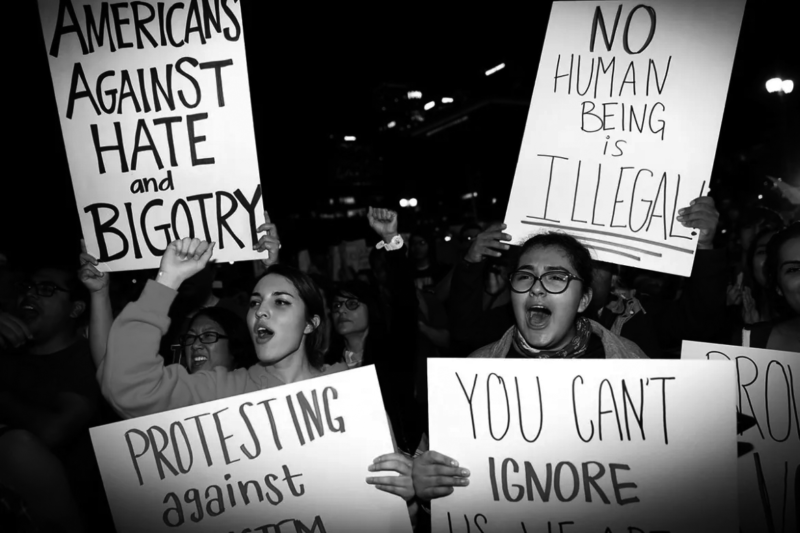Bosnia: the forgotten uprising
By KD Tait
March 24, 2014

In early February thousands workers and young people took to the streets in towns and cities across Bosnia–Herzegovina (BiH): Tuzla, Sarajevo, Zenica, Brčko, Bihac and Mostar and others.
Sparked by protests against the privatisation and asset-stripping of five previously state-owned factories in Tuzla, the movement spread like wildfire across much of the country. Capitalist robbery, corruption and divisive nationalism were the common enemy.
The workers and youth were mobilising not just in protest against the harsh conditions of life, but with the aim of overthrowing the rule of the nationalist parties who have governed since the end of the 1992-95 civil war.
But when the people in Bosnia occupied government buildings and armed themselves with Molotov cocktails to protest against sky-high unemployment, endemic corruption and mass impoverishment, they were left to fight alone.
There were no visits from US secretaries of state or French philosophers, no threats of economic sanctions against Bosnian government officials or bankers.
The reasons are clear: unlike Ukraine, the political class and system in Bosnia is one of the western imperialists’ own making – and entirely under their thumb.
The US-sponsored Dayton Agreement, imposed after the civil war, far from ensuring the promised accountability, protection and autonomy for Bosniaks, Croats and Serbs, has in fact subordinated them to a corrupt self-serving bureaucracy, which facilitates the legalised, divide and rule plundering carried on by the bosses, the catalyst of a month of protests.
The Agreement is overseen by the European Union. And the EU’s writ is enforced by EUFOR – an occupation force of 2,500 soldiers under an Austrian general. The High Representative for Bosnia and Herzegovina, appointed by the EU, has the power to impose binding decisions and dismiss elected officials – powers it has used frequently and without scrutiny for over a decade.
Faced with a popular uprising, the European imperialists will no doubt attempt to shore up the political system that they themselves created. While the workers of Tuzla understandably demand the institution of education, healthcare and employment practices that match European norms, they rightly reject any idea that the European powers should intervene in their struggle.
As if they needed any further lessons in the cynical policy of the European ruling class, they need only observe Ukraine, where Germany supports the Euromaidan movement, despite its violence and fascist components, but insists that in Bosnia order must prevail. Indeed, the first response of the Austrian High Representative was to threaten the protesters with the use of foreign soldiers to restore order if the government and police could not.
People’s democracy
People who set themselves the goal of bringing down a government immediately face the question of what should replace it. When, as in Bosnia-Herzegovina, almost the entire political class and all the parties are discredited as corrupt, self-serving parasites, the task of creating a democratic government out of the chaos was one workers and youth tried to seize with their own hands. The instrument they chose was the plenum – an institution derived from student struggles of recent years.
In an interview on Al-Jazeera, Tuzla University teacher Damir Arsenijević answers the question – what is a plenum?
“A plenum is an assembly of all the members of a group. It is a public space for debate. It has no leaders or prohibitions. Decisions are made through a public vote. A plenum is not a political party, or an NGO, or a one-person association. A plenum is the real, and the only democracy. A Plenum makes and adopts demands on all the institutions of state power by its own declaration. People vote for or against. Decisions are made on a majority basis.”
Through the medium of the plenum, the workers and students of Tuzla developed a whole series of demands. These included more equalisation of wages, investigation of corrupt privatisation deals, renationalisation of industries under workers’ control, an end to police violence and for the creation of a government of experts accountable to the citizens’ plenums.
The holding of plenums rapidly spread from Tuzla to Sarajevo and other major towns and cities. They have demanded the resignation of the cantonal, i.e. county governments, as has already been achieved in Tuzla, and try to exert popular control over the activities of the official Cantonal Assemblies.
Over the last three years we have witnessed various attempts at direct democracy. These include the Indignados movement in Spain and the Syntagma and other square occupations in Greece, and the US #Occupy movement. From the beginning these encumbered themselves with the problem that they could hardly make any decisions let alone implement them because they demanded consensus or unanimity.
The prioritisation of individual expression over efficient mass participation was a serious obstacle to working class involvement. They could not incorporate the viewpoint of that part of the population capable of using its economic power to advance the political decisions of the assemblies.
In contrast the Bosnian plenums aspired to be effective in action and maybe because of the militant mass mobilisations, initiated by the workers in Tuzla, they initially were more decisive, voting by majority, not seeking to ban political parties as such.
However, the plenums need to develop into revolutionary councils of delegates from the workplaces and the working class communities, like the Russian soviets of 1905 and 1917. Under the influence of liberal and libertarian ideas, they are currently contenting themselves with discussions and trying to implement immediate, piecemeal changes, while leaving the powers that be – including the Dayton High Representative – in control.
Taking the power
The demand for a government composed of politically unaligned “experts” obviously reflected the deep contempt of the people for the parasitic political elite. Their anger at the corrupt politicians and their political parties was fully justified. But there simply are no “neutral experts” who can be called in to do the governing.
Where would you find them? They will never be provided by the business community, by the state bureaucracy or the professors, let alone by the European Union. The governments of bankers and technocrats appointed in Italy simply pressed ahead with privatisations and austerity – i.e. they were composed by the political and financial institutions of the ruling class and imposed on the people to carry out the imperialists’ policies, when parliamentary democracy proved incapable of doing so.
Of course the plenums should have done all in their power to exercise control over the cantonal assemblies and federal government but their aim should have been to replace them with a government made up of delegates elected by and accountable to the working people, students and the unemployed.
Only then would the workers, youth and poor farmers be able to reorganise production to meet the needs of the people. But above all this required the working class to take the initiative once more and to form a workers’ government – to take power.
But clearly in a small state like Bosnia, workers’ power could hardly survive in isolation – indeed for Bosnian workers to achieve unity among them they will need to reach out to the progressive forces in Serbia and Croatia.
Solidarity in a common struggle against the same sort of rotten regimes can prove to all sectors of workers the need for class unity. The Bosnian uprising clearly showed that this can be achieved, where solidarity demonstrations in Belgrade and the Republika Srpska, though repressed, spontaneously sprung up.
Likewise, recent mass movements against austerity and misery in Slovenia and Bulgaria indicate that this can be done.
International solidarity
The rulers of Western Europe and North America played a reactionary role in the break up of Yugoslavia, interfering in and prolonging the war, then maintaining the disastrous Dayton system. Even after this, they pressed for privatisations and neoliberal “reforms”. So workers and students in these countries need to do all in their power to bring solidarity to their brothers and sisters in Bosnia and the other Balkan countries.
The resistance of the workers and youth to neoliberalism and capitalist austerity encompasses the globe. From Damascus to Sarajevo via Gezi Park, people are rising up against a system which cannot provide even the minimum necessary to survive.
Across Europe workers and young people should organise solidarity and defend the right of the peoples of Bosnia and other Balkan countries under EU domination to determine their own destiny – a right to political and economic self-determination that ultimately can only be defended with force against those who would crush movements like that in Bosnia and frogmarch them back into nationalist ghettoes and capitalist wage slavery.









